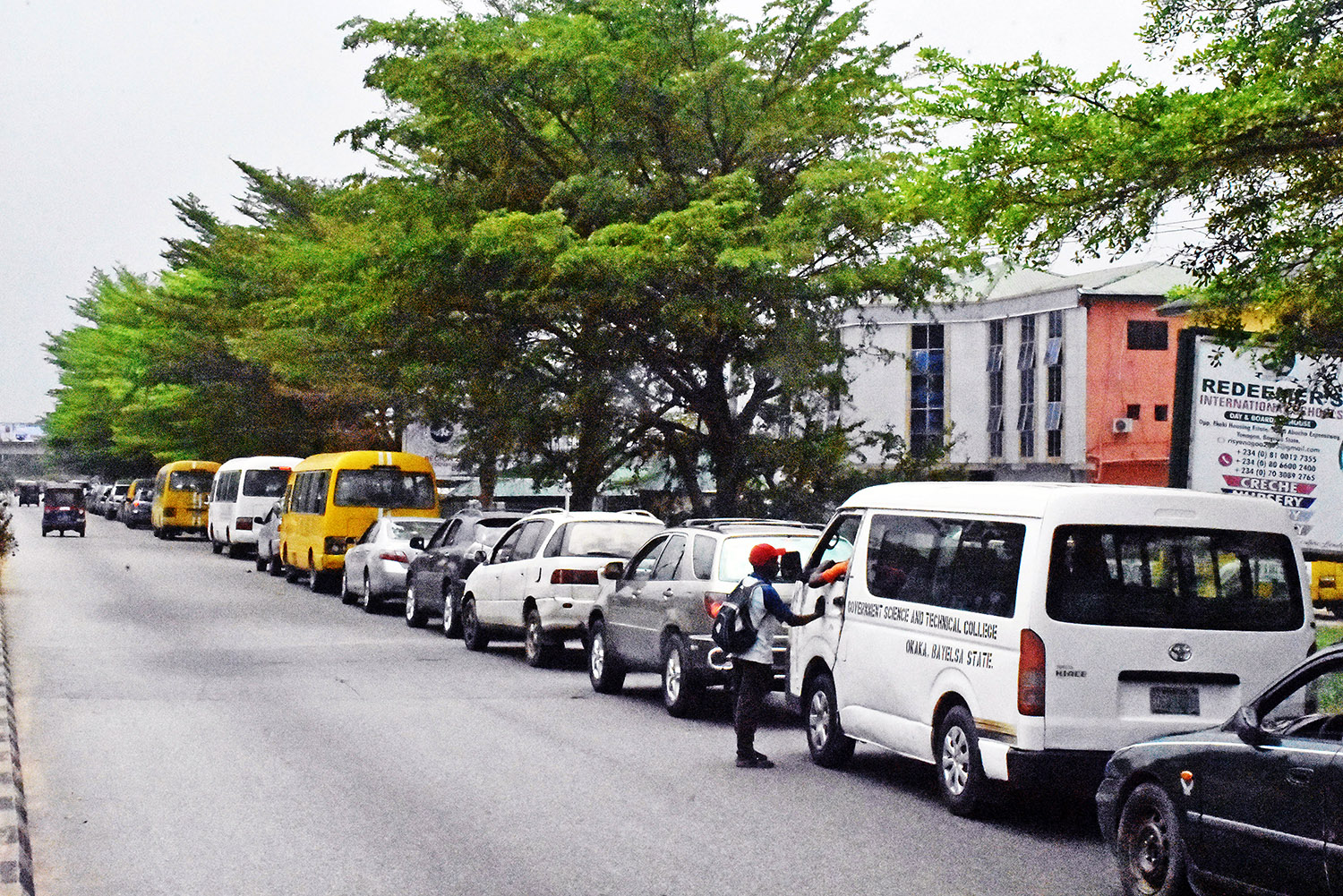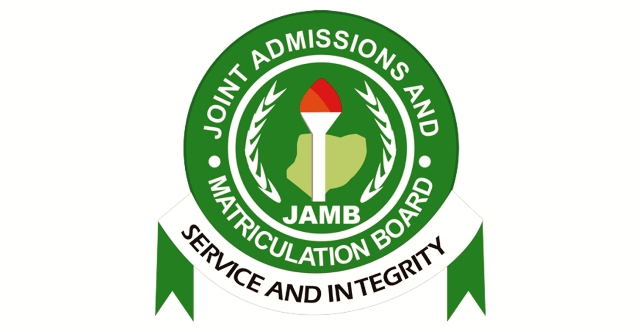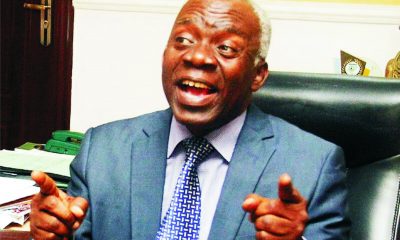Business
2010: Mixed Grill For Nigeria’s Manufacturing Sector
From all indications, Nigeria’s manufacturing sector has recorded some improvement last year due to a number of reforms initiated by the Federal Government.
The Manufacturers Association of Nigeria (MAN) says that macroeconomic indicators in 2009 showed that the country’s Gross Domestic Products (GDP) grew by 7.0 per cent in the third quarter of last year, compared with 6.13 per cent in 2008.
The association says the growth was driven mainly by the non-oil sector, particularly agriculture, which accounted for 45.35 per cent of the GDP.
Industry operators attribute the feat to the latest round of Central Bank’s banking reform programme, which started in August 2009, saying that the reform has impacted positively on the manufacturing sector in 2010.
They also note that the Federal Government’s Power Sector Reform Programme, aimed at fully liberalising power generation and distribution, has also boosted production in the manufacturing sector.
They say that the two reforms, if well implemented, are capable of reviving manufacturing activities and the national economy, while aiding the fulfillment of the Federal Government’s Vision 20:2020, aimed at making Nigeria one of the top 20 industrialised countries in the world by 2020.
MAN, at its last annual general meeting, described the latest banking reforms as “timely, creative and critically beyond the teachings of liberal economic theory where the primary role of the central bank is macroeconomic stability and to ensure a stable banking sector’’.
The immediate-past President of MAN, Alhaji Bashir Borodo, conceded that it was rare for the CBN to initiate such initiatives to redeem the real sector of the economy directly, adding that such tasks often fell within the exclusive preserve of politicians, ministers of finance or national planning.
He noted that the World Bank and the International Monetary Fund (IMF) often viewed developing countries’ efforts to inject funds to prop up the real sector of their economies with scorn.
Borodo said that the banking reforms had a three-stage process which was first of its kind in any developing country, adding that the first involved the restructuring of existing short-term, high-interest loans into long-term loans with a low interest of seven per cent per annum.
Under this requirement, banks are expected to give loans to the real sector, using at least 50 per cent of funds received from the Bank of Industry (BOI), while the CBN guarantees loans given to
manufacturers and SMEs under the Medium Enterprises Credit Guarantee Scheme.
“We believe this bold initiative by the CBN will set the standards for monetary intervention in the real sector and will ultimately define the relationship existing between the banking sector and the real sector,’’ Borodo said.
The MAN chief, however, said that for the manufacturing sector, there had been “growing challenges’’, induced mainly by the economic environment of the country.
Industry watchers, nonetheless, commend the Federal Government for approving N150 billion for the manufacturing sector and N100 billion for the textiles sector, out of which N30 billion has already been disbursed through the Bank of Industry (BOI).
In spite of the intervention, experts say that many challenges are still confronting the manufacturing sector, stressing that a major limitation was the country’s energy crisis.
However, the Federal Government is not unmindful of the energy constraints, as it has repeatedly pledged to make electricity more available by 2012 via its power reform programme.
On August 26, for instance, President Goodluck Jonathan launched the roadmap to power sector’s reform, in which Federal Government is expected to sell off its 51 stake in electricity distribution companies and thermal power stations to private investors.
Under the new arrangement, however, the Federal Government will still own the transmission grid but the facility will be managed by private sector operators.
Prof. Barth Nnaji, the Chairman of the Presidential Taskforce on Power Issues, said that the Federal Government was working hard to ensure that some of the electricity companies were sold before the expiration of the administration’s tenure.
The measures notwithstanding, economic analysts contend that the limitations of the manufacturing sector include inconsistent government policies, poor infrastructure, multiple taxation, smuggling and importation of substandard goods.
They also criticise the new Federal Government policy lifting the ban on imported products such as textiles and fabrics, toothpicks and beverages, while extending the age of imported second-hand vehicles to 15 years.
The Minister of Finance, Mr Olusegun Aganga, who unveiled the new policy, defended it as a strategy aimed at encouraging Nigerian importers to use the country’s seaports for imports to generate revenue for the government and discourage smuggling of vehicles in particular.
However, Mr Jaiyeola Olanrewaju, the Director-General of the Nigerian Textiles Manufacturers Association (NTMA), said that the textile sector did not perform well in 2010.
He, nonetheless, said that some textile producers were able to have access to N30 billion, out of the N100 billion which the Federal Government gave to BOI for the development of the textile sector.
Olanrewaju bemoaned the state of Nigeria’s infrastructure, deploring the dismal state of the country’s energy situation in particular.
“Unless the power situation is improved, our industries cannot produce competitively, as imported items will continue to be cheaper than locally produced products,’’ he said.
The NTMA chief stressed that no country could develop without a productive industrial base which was hinged on regular electricity supply.
He described the new government policy lifting the ban on imported items, including textiles, as “absurd’’, particularly when locally produced fabrics could not compete with the foreign ones.
“Stakeholders believe that the ban should be maintained until the operating environment is conducive enough, as most of our textile products cannot compete with imported ones because of high costs of production,’’ he said.
Olanrewaju said that it was incongruous for the government that was struggling to ensure the revival of the country’s ailing industries to initiate such a policy that could provoke the closure of more industries and worsen the unemployment situation.
He wondered how textiles manufacturers would be able to pay back the loans they got from BOI if they were unable to produce and sell fabrics because of the new policy.
“It means the government will have to take over the factories sooner or later when they cannot meet their obligations to the bank,’’ he said.
Olanrewaju identified some of the problems plaguing the sector as poor electricity supply, prohibitive costs of diesel, gas and transportation, as well as bad roads.
Apart from textile manufacturers, other industrialists have bemoaned the government policy relaxing the import restrictions placed on certain manufactured goods.
They argue that the country would soon become a dumping ground for substandard products, stressing that the Federal Government must reverse the policy which, they say, is inimical to the growth of the manufacturing sector.
Alhaji Amuda Obelawo, the Chief Executive Officer of LOPIN Industries, identified the influx of substandard goods into Nigeria as the bane of the country’s industrial development.
Obelawo, who made the observation during a recent inspection of one of his factories by the Standards Organisation of Nigeria (SON), stressed that the importation of poor quality goods would thwart efforts to foster the country’s economic development.
“Government should stop the production and importation of substandard products because the buyers are just being hoodwinked to buy products that are not durable.”
“The proliferation of substandard products in our markets is affecting the national economy and is posing serious threats to the survival of indigenous companies.
“The government is also responsible for the problem because its agencies do not buy ‘Made-in-Nigeria’ products and quality goods because of selfish gains,’’ he said.
Obelawo alleged that many contractors handling federal, state and local government contracts were fond of using fake products in the projects, adding: “That is why we often see new buildings collapse.”
Still on the Federal Government policy, Dr David Obi, a member of MAN’s executive council, stressed that the lifting of the ban on the importation of certain categories of second-hand vehicles was an example of policy inconsistency.
Obi, who is also a member of the governing council of the National Automotive Council (NAC), urged the Federal Government to rescind its policy that increased the age of imported vehicles to 15 years, saying it would cause more harm than good.
He said that such a policy was a disincentive to some automobile companies itching to establish vehicle assembly plants in Nigeria, adding that such plants would also create more employment in the country.
Obi urged Nigeria to take a cue from China, a country which started the development of its automotive industry instead of relying on cheaper alternatives offered via the importation of used vehicles.
“In fact, China was offered thousands of used vehicles free of charge by Japan some years ago but China turned down the offer because it would interfere with plans to build its own automotive industry.”
“Nigeria now wants scraps to be brought into the country as vehicles without regard for the development of its automotive industry,’’ he said.
Obi stressed that the Federal Government ought to protect and nurture the development of the country’s automotive industry, urging it to learn lessons from the U.S. government which had always protected the country’s steel industry against unfair competition.
Reacting to the criticisms of the policy, Alhaji Jubril Martins-Kuye, the Minister of Commerce and Industry, said that the new policy on importation of used vehicles was not just to earn more revenue for government but also to make more vehicles available for the citizens.
He noted that neighbouring countries, such as Benin Republic and Togo, had 15 years as the age-limit for imported used vehicles, adding: “Somehow, these vehicles find their way to Nigeria through smuggling.
“And since the vehicles are smuggled into Nigeria, the Federal Government loses the revenue that should normally accrue to it and this is what we want to stop,’’ he said.
Besides, Martins-Kuye stressed that government only lifted the ban on those textiles that were not produced in the country, saying: “We only unbanned the importation of goods, including textiles, that we are not produced locally.’’
The minister pledged the Federal Government’s commitment to promoting Nigeria’s industrialisation, and explained why it had placed appreciable emphasis on the power sector’s reform, so as to make the country more investment-friendly.
All the same, industrialists have been commending the campaign to promote increased patronage of Made-in-Nigeria products, which started in August 2009, as a tonic that would boost the development of the manufacturing sector.
They, nonetheless, insist that the government should make concerted efforts to tackle the country’s energy crisis, saying that the achievement of a stable power supply in the country would play a pivotal role in transforming the national economy.
The experts also urge the government to provide low-interest credit facilities for manufacturers and reduce taxations on manufactured goods, while raising the duties payable on imported items to encourage local production.
All said and done, the experts believe that the development prospects for the manufacturing sector are quite bright in 2010.
Grace Yusuf
Business
Fuel Scarcity: IPMAN threatens shutdown over bridging claims

The Independent Petroleum Marketers Association of Nigeria (IPMAN) Depot Chairmen Forum, has exonerated its members from the current fuel scarcity in the country.
According to IPMAN, this is caused by its inability to source petroleum products.
The IPMAN Depot Chairmen Forum also threatened to withdraw its services over non-payment of N200 billion bridging claims by the Nigerian Midstream and Downstream Petroleum Regulatory Authority (NMDPRA) to its members, since 2022.
Alhaji Yahaya Alhassan, the Chairman, of the Forum said this while briefing newsmen in Abuja, yesterday.
Alhassan said the Nigerian National Petroleum Company Limited (NNPC Ltd.) was the sole importer of the product, but the marketers could not source products from NNPC Ltd. deport, rather from the private depots at high rate.
“We cannot buy fuel from the private depots at N950 and transport the product from Lagos to the North and other parts of the country with N2 million and still sell it at N900 or N1, 000.
“It is expedient for us to state that we are more pained by the non-availability of petroleum products in the country, which has given rise to another round of untold hardship for Nigerians.
“Contrary to claims that IPMAN members are hoarding Premium Motor Spirit (PMS) known as fuel, we would like to categorically state that PMS scarcity is wholly triggered by inability to get fuel from NNPC and not IPMAN,’’ he said.
Meanwhile, the NNPC Ltd. Chief Corporate Communications Officer, Olufemi Soneye said the disruption was due to logistical issues which had since been resolved.
“We currently have an availability of products exceeding 1.5 billion litres, which can last for at least 30 days. Unfortunately, we experienced a three-day disruption in distribution due to logistical issues, which has since been resolved.
“However, as you know, overcoming such disruptions typically requires double the amount of time to return to normal operations.
“Some folks are taking advantage of this situation to maximise profits. Thankfully, product scarcity has been minimal lately, but these folks might be exploiting the situation for unwarranted gain,’’ Soneye said.
He however, said the lines would clear out soon.
On the non-payment of bridging claims, the IPMAN forum said it was distressed and depressed by the laidback attitude of the NMDPRA towards the survival its member’s businesses, arising from its refusal in paying the claims.
“It is with deep frustration that we have assembled here today as the IPMAN Depot Chairmen Forum. It is also disheartening to note that some of our members have completely shut down businesses and retrenched employees.
“As businessmen and women, our members acquired bank loans to keep their fuel retail outlets running on a daily basis across the nooks and crannies of Nigeria in order to serve the teeming population of Nigerians,’’ Alhassan said.
He recalled that Sen. Heineken Lokpobiri, Minister of State Petroleum Resources (Oil), at a stakeholders meeting in February mandated the NMDPRA management to clear the entire debt in 40 days.
“However, today, we have crossed the 40 days’ time lapse given to the NMDPRA to clear the debt, and it is shameful to state that only the paltry sum of N13 billion has been paid, ignoring minister’s directive.
“We are not happy with the indiscriminate increment in the issuance and renewal of Sales and Storage Licence, by the NMDPRA, and the subsequent delays in acquiring the licence, which our members are recently subjected to.
“We are also calling on President Bola Tinubu to look into this unwholesome figure which is highly detrimental to our business and reverse it forthwith, as it is bound to impact negatively on the masses.
“We are poised to take far reaching decisions that may cripple the supply and sales of petroleum products across Nigeria if our demands are not met within the shortest period of time.
“We are collectively prepared to withdraw our services, shut down every single outlet, and suspend lifting of products forthwith till our demands are fully met, and the consequences will be terrible.
“We call on our members to however remain resolute and law abiding, even as we draw close to the immediate ultimatum for our demands to be met by the NMDPRA,’’ the chairman said.
Reacting to the IPMAN’s claims, the Acting Head, Corporate Communications, NMDPRA, Seiyefa Osanebi said the bridging claims payment was ongoing.
“The bridging claims payment is always an ongoing process,” she said.
Maritime
Shippers’ Council Registers 160 Port Operators

The Nigerian Shippers Council (NSC) says it has registered 160 Port stakeholders into its Regulated Port Service Provider and Users platform since the initiative began in 2023.
Executive Secretary, NSC, Mr Pius Akutah, made the disclosure on the sideline of a sensitisation programme by the commission for port operators in Lagos, with the theme, “Regulated Port Service Provider and Users”.
Represented by the Director, Consumer Affairs, Chief Cajetan Agu, Akutah emphasised the significance of the programme for stakeholders.
He said the sensitisation programme was the second edition after its commencement during the last quarter of 2023.
The Secretary said the 160 registered port operators consist of agencies, terminal operators, shipping companies, individual port users as well as service providers.
“We invited the ports stakeholders for enlightening them on the processes for online registration of Regulated Port Service Provider and Users.
“We have demonstrated to them how to register and how to make payment and we were able to present before them the various categories of the registration.
“The rate of payment is also in the registration. The payment of each group depends on the operation. A shipper pays N30,000, terminal operators and shipping companies pay N300,000, truckers also pay N30,000, while some pay N50,000 and N100,000.
“The Council was able to intimate them on the benefits, because port users benefit more as we help to interface on reducing port charges from time to time”, Akutah said.
He said that there was a need to continue to work with port operators to stop delays and eliminate high costs to make the port efficient.
Also speaking, the Deputy Director, Stakeholders, Service, NSC, Mr Celestine Akujobi, said “the sensitisation exercise was important for the council to enable us bring all the port stakeholders together”.
According to him, this is to avoid challenges during the implementation of the council’s responsibilities.
“By the time we introduce sanctions on defaulters, no operators will complain that he or she is not aware of the registration.
“I’m happy with the turnout of this sensitisation. This shows that the operators are well informed of the statutory friction of the council as the port regulator.
“The final implementation will commence as soon as we discover that all the operators have keyed into the portal.
“We are engaging other ports across the country and we’re hopeful that before the last quater of 2024, the council will implement sanctions on defaulting operators”, Akujobi said.
Earlier, Vice Chairman, National Association of Government Approved Freight Forwards (NAGAFF), Dr Ifeanyi Emoh, said port challenges were enormous, adding that they originated from some of the government agencies.
Emoh urged the council to look into regulating other government agencies, so that there could be a window through which they can collect port charges collectively instead of indiscriminately.
By: Chinedu Wosu
Business
Chivita, Hollandia Reward Outstanding Trade Partners At Annual Conference

Chivita| Hollandia (CHI Limited) leading fruit juice and value-added dairy manufacturer in Nigeria has rewarded its long standing distributors at the recently held 2024 Distributor Conference. The event with the theme, “Break Boundaries Exceed Expectations” served as a platform to recognise and reward the exceptional contribution of the distributors and wholesalers who play a critical role in Chivita|Hollandia (CHI Limited) success and business goals for the year.
The Distributor Conference was held in two sessions. While the morning session featured keynote addresses, industry insights and brand immersion experience, the evening session was a cultural display of elegance and funfair that culminated in the award presentation and recognition of the contribution the trade partners made to the company in the 2023 year under review.
A key highlight of the event was the award ceremony which acknowledged outstanding trade partners in various regions across the country. The awards recognized commitment, dedication, and outstanding performance in areas of sales growth, brand promotion, and market expansion.
Eelco Weber, Managing Director, Chivita|Hollandia (CHI Limited), stated that the company’s success story is incomplete without the strong partnerships it has built with trade partners. “Today, we celebrate not only the achievements, but the collaborative spirit that has made our growth possible” he said.
Bola Arotiowa, Chief Commercial Officer, Chivita|Hollandia (CHI Limited), in his statement revealed that, the event which was first of its kind will continue to be an annual meeting to enable the company work more closely with its distributors, share insights and action points, help the trade partners familiarize themselves with the company’s goals and objectives for each year, and serve as a driver for mutual success.
“Our distributors are the backbone of Chivita|Hollandia (CHI Limited). Their relentless efforts in distributing our products, promoting our brands, and expanding our reach across the nation is truly commendable. As the bridge between us and our valued consumers, it is very important to reward their hard work and dedication for being an essential part of the Chivita|Hollandia (CHI Limited) family. Together, we will continue to deliver great products to our conusmers which in turn will deliver value to them”, Mr. Arotiowa added.
Speaking at the conference, HajiyaBilikisuSaida, Chief Executive Officer of Smabirm Nigeria Limited, who won the Outstanding Distributor of the Year in North 1 region, and got a reward of two million Naira worth of Chivita|Hollandia (CHI Limited) products expressed delight at the company’s recognition, and stated that the awards served as a way to inspire distributors to do more and put in more effort, which in turn would help both the distributors and the company to grow.
Other outstanding performance distributors of the year rewarded with a two million Naira worth of Chivita|Hollandia (CHI Limited) stock include, Sunny Chuks Limited for East 1 region, MRS FA & Sons Limited for East 2 region, Hussakas Ventures for North 2 region, Rookee 1388 Ventures for Lagos 1 region, Pik N Pil Ventures for Lagos 2 region, FaithJoe Event Management Limited for West 1 region, and Progress Family Nigeria Enterprise for West 2 region.
The annual Distributors Conference aims to strengthen the bond between Chivita|Hollandia (CHI Limited) and its trade partners. This collaborative approach fosters mutual growth and ensures the continued success of the brands in the Nigerian market.
-

 News3 days ago
News3 days agoEx-CBN Director Admits Collecting $600,000 Bribe For Emefiele
-
Nation3 days ago
Ibom Developers Supports 160 Women with Skill Acquisition Training in Akwa Ibom
-

 News3 days ago
News3 days ago1.4m UTME Candidates Scored Below 200 -JAMB
-
News3 days ago
Gunmen Kidnap Four In Abuja
-

 News3 days ago
News3 days agoYou Failed Nigerians, Falana Slams Power Minister
-

 Nation3 days ago
Nation3 days agoIbom Developers Supports 160 Women with Skill Acquisition Training in Akwa Ibom
-
Niger Delta3 days ago
Fire razes 4 shops in Edo
-
News3 days ago
Reps Order NERC To Suspend Implementation Of New Electricity Tariff

